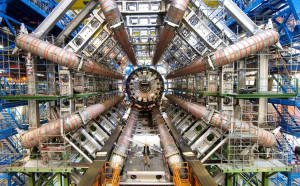The Power of People (and the Headache of Counting Them)

It’s census time. In the United States, people have been filling out and mailing forms, in addition to being interviewed by officials from the Department of Census. The feat of carrying out a survey of 300 million people is as difficult as it is important. Simultaneously, in another part of the world, census officials are faced with an even bigger headache: surveying and charting India’s population for its 15th census. How much bigger? India’s population is now estimated to be at around 1.2 billion, almost four times that of the U.S. Added to this is the fact that a large portion of India’s population lives in villages that are off the beaten track, and a large part of its population is a ‘floating’ one, without any permanent base.
The numbers boggle the mind. 250,000 census officials will travel to 240 million homes spread across 600,000 villages, 7000 towns and 600 districts, in an operation that will cost almost $2 billion. In addition, Access to many of the more obscure places that officials will travel to is mired by terrible roads, or indeed no roads at all. It is often said that conducting a legitimate election in India is one of the world’s biggest logistical feats, but it pales in comparison to the task of carrying out an even remotely accurate census in the country. The fact that it’s even done- and has been done fourteen times since 1872- is an achievement for a government that is often derided for its labyrinthine bureaucracy and overall corruption levels.
A rising economy and a changing demographic mean that the census will continue to be one of the most important procedures that India’s government undertakes.
The Vatican’s woes
Catholicism is facing a crisis of leadership. While the world’s largest democracy is being counted and categorized, the world’s largest single denomination faces turmoil. This last week, there has been mounting pressure on Pope Benedict to resign, which he can technically do by submitting a signed letter to the council of cardinals. No modern Pope has done this, but these are not ordinary times, with a sinister history of child molestation coming to the fore after decades of silence.
Cardinal Sean Brady, the head of the Irish Church has been under particularly heavy fire with his position being called under severe scrutiny and an erosion of his respectability. He allegedly knew about crimes in question but kept silent on the matter. The Irish church has also been rocked by not one, but a series of scandals, with the most shocking being that of Brendan Smyth, a clergyman who molested hundreds of child victims throughout the seventies and eighties. He died in prison in 1998, but his sinister legacy lives on. The Vatican has some serious questions to answer, not least to the faithful who would derive hope from their spiritual leaders.
One Great Leap For Mankind..

Move north from the Vatican however, and there is a decided increase in the levels of optimism. This week, the Large Hadron Collider (LHC) performed the high-energy experiments it was designed for, after nearly two years of repair. The machine, a 27 km long tunnel under the Franco-Swiss border was originally finished in 2008, but broke down, much to the disappointment of the scientific community. Today, it’s fully fixed, and to cut a long story short, works.
The idea of the experiment is to accelerate particles around the tunnel until they approach the speed of light, and then have them collide to create conditions that scientists believe are similar to those that existed at the very beginning of the universe. Don’t hold your breath for a definitive conclusion though: according to CERN, the research institute that conducted the experiment, it will take scientists years to fully understand the results. Overall, this is a very exciting time to be a particle physicist indeed.
In an interesting week for science, famed but reclusive Russian mathematician Grigori Perelman has turned down the prestigious Clay Medal for Mathematics, awarded to him for solving the Poincare Conjecture, a 100 year-old math problem that could help determine the shape of the universe. Eccentric and shy, his friends say his apartment is cockroach-infested and in a state of disrepair, and Perelman would have it no other way. In his words, he does not want to be ‘like an animal in a zoo’ and claims he is ‘not a hero of mathematics’. He had previously also turned down the Fields’ medal and his future in Mathematics is under doubt, if reports are to be believed. One hopes that for the sake of science, however, that he continues his groundbreaking work.
The Sudan Divided
Believed to be the hungriest place on Earth, Sudan is facing a possible election boycott. The head of a prominent opposition party in North Sudan,Sadiq al Mahdi, has vowed to boycott the first multipartisan elections in the country in 24 years if his demands are not met. Already deeply divided, the country could face a serious problem of credibility if this happens. The country’s president,Omar al-Bashir, is wanted for war-crimes in Darfur, and flouting the ultimatum could further weaken his position. Sudan is a country in dire need of strong leadership, and the elections could mean some hope in a war-torn and poverty ridden country.
Humanity continues to confound and amaze in equal measure.